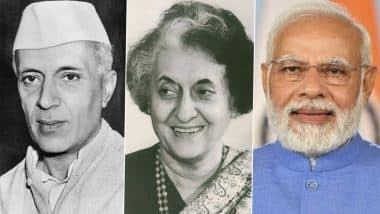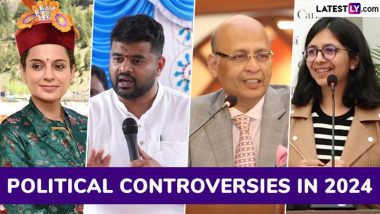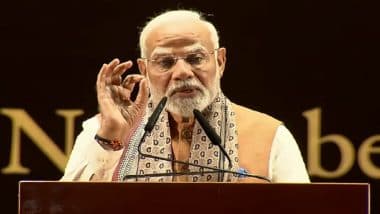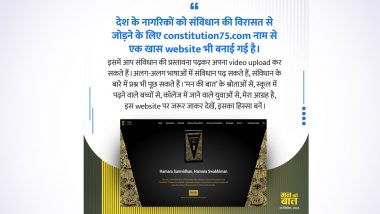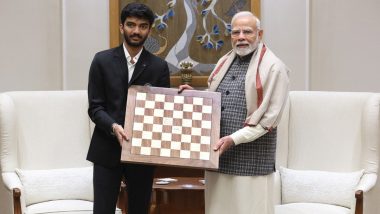Mumbai, June 10: BJP leader Narendra Modi took oath as the Prime Minister of India on Sunday, June 9. This will be the third time when PM Modi will lead the BJP-led NDA government at the centre. Along with PM Modi, 71 leaders also took oath as the central ministers. As PM Modi begins his third term as the Prime Minister, here's the list of all the Prime Ministers that governed India since the country's Independence.
On August 15, 1947, India attained independence and embraced a parliamentary form of government. Since then, the country has been navigating a difficult path with frequent changes in the political landscape. From Pandit Jawaharlal Nehru, India's first Prime Minister, to the current PM Narendra Modi, every PM has made a substantial contribution to the progress of the nation. Their programmes and policies have had a profound impact on Indian politics and people's lives, transforming the country into a thriving democracy and promoting development in a number of fields. Modi Cabinet 2024: 30 Cabinet Ministers, 36 MoS, 5 MoS (Independent Charge) in New BJP-Led NDA Government; Check Full List of Council of Ministers.
List of Indian Prime Ministers Since Independence
Jawaharlal Nehru
Tenure- 1947 to 1964
India’s first and longest serving Prime Minister, Jawaharlal Nehru served for a period of 16 years and 286 days. Known as the “Architecture of Modern India”, Nehru made significant contribution to the country’s development.
Lal Bahadur Shastri
Tenure- 1964 to 1966
Lal Bahadur Shastri succeeded Jawaharlal Nehru post his death in 1964. Shastri coined the popular slogan of “Jai Jawan Jai Kisaan” honouring both soldiers and farmers. His tenure witnessed the second India-Pakistan War in 1965. During his government, he promoted White Revolution and Green Revolution.
Indira Gandhi
Tenure- 1966 to 1977 and 1980 to 1984
Indira Gandhi, the third Prime Minister of India, was the daughter of Jawaharlal Nehru and the first woman Prime Minister of India. Known as the Iron Lady, she led India to victory during the India Pakistan War of 1971. Her tenure witnessed one of the most controversial political events of all time- State of Emergency (1975-1977). She was assassinated on October 31 1984 by two bodyguards who wanted to seek revenge over the controversial Operation Blue Star. Smriti Irani, Anurag Singh Thakur, Rajeev Chandrasekhar, Ashwini Choubey Dropped From Union Cabinet; Say Will Continue to Serve as BJP Workers.
Morarji Desai
Tenure- 1977 to 1979
Morarji Desai became the fourth Prime Minister of India after Indira Gandhi dissolved the Lok Sabha in 1977. Hailing from Janata Party, he led the first non-Congress government in India. A follower of Mahatma Gandhi, he prioritised ethical governance practices, eliminating corruption from within the government system. During his tenure, India established friendly relations with China and Pakistan post war of 1962 and 1971.
Chaudhary Charan Singh
Tenure- 1979 to 1980
Hailing from Janata Party, Chaudhary Charan Singh served as a Prime Minister for a very brief period of time. Though his ideas about agriculture and rural advancement were welcomed by the people, his administration collapsed in 170 days.
Rajiv Gandhi
Tenure- 1984 to 1989
The youngest Prime Minister in the history of India, Rajiv Gandhi took over the post at the age of 40 after the Congress won a record 401 seats out of 508 in the 1984 Lok Sabha elections. Son of Indira Gandhi, Rajiv took the reins of the governance after his mother’s assassination. He faced defeat in 1989 Lok Sabha election and became the Leader of the Opposition. Six months later in May 1999, Rajiv Gandhi was assassinated by a member of Liberation Tigers of Tamil Eelam during his political campaign in Tamil Nadu.
Vishwanath Pratap Singh (VP Singh)
Tenure- 1989 to 1990
Hailing from a family of zamindars (land owners), VP Singh, succeeded Rajiv Gandhi in 1989. Though he tenured for only one year, he introduced many social reforms and acts like implementation of Mandal Commission Report and Enactment of Scheduled Caste and Scheduled Tribe Act. His career as Prime Minister was short lived as he resigned from the cabinet in 1990.
Chandra Shekar
Tenure- 1990-1991
Chandra Shekar served as the ninth Prime Minister of India and ran a minority administration with backing from Congress.
PV Narsimha Rao
Tenure- 1991 to 1996
PV Narsimha Rao was the first Prime Minister from the southern part of India. A lawyer by profession, Rao introduced liberal schemes and reforms for India’s economic growth. He appointed Manmohan Singh as Finance Minister to carrying out economic reforms. His tenure witnessed demolition of Babri Masjid in Ayodhya followed by communal violence throughout the nation.
HD Deve Gowda
Tenure- 1996-1997
As a prominent figure in the Janata Dal, HD Gowda prioritised the advancement of agriculture and rural development. Prior to becoming Prime Minister, he pushed decentralisation of power and carried out large-scale irrigation projects. Gowda's advocacy for federalism and regional issues, despite his brief tenure as Prime Minister, was a significant contribution to India.
Inder Kumar Gujral
Tenure- 1997-1998
Inder Kumar Gujral was the Prime Minister of India between 1997-1998. He advocated the "Gujral Doctrine” which aimed at improving India's relations with its neighbours through unilateral concessions and non-reciprocal benefits.
Atal Bihari Vajpayee
Tenure- 1996, 1998-2004
Atal Bihari Vajpayee was the one of the co-founders and leaders of Bharatiya Janata Party. Under his leadership, India witnessed events like the Pokhran II nuclear test, Kargil War of 1999.
Manmohan Singh
Tenure- 2004 to 2014
The third longest serving Prime Minister of India, Manmohan Singh is a renowned economist and academician. During Singh's tenure, key legislations like National Rural Employment Guarantee Act (NREGA), the Right to Information Act (RTI) in 2005, the Unlawful Activities (Prevention) Act, The Right to Fair Compensation and Transparency in Land Acquisition, Rehabilitation and Resettlement Act, 2013 were passed.
Narendra Modi
Tenure- 2014 to Present
Current Prime Minister of India, Narendra Modi is one the few leaders in history of Indian leadership who got the third consecutive term. Hailing from the Bharatiya Janata Party, he implemented dynamic foreign policies and focused on infrastructure development and economic reforms.
(The above story first appeared on LatestLY on Jun 10, 2024 11:37 AM IST. For more news and updates on politics, world, sports, entertainment and lifestyle, log on to our website latestly.com).



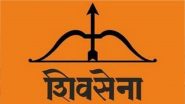









 Quickly
Quickly








